
We’re lucky to live in a world where there are audiobooks about a vast array of neurodivergent issues. They offer guidance, research, and a unique look at both the benefits and challenges of falling outside of the neurotypical realm.
Whether or not you are neurodivergent, you likely know someone who is. You can also benefit from these books no matter where you fall on the neurodivergent/ neurotypical spectrum. I only clean my house using tips from a listen on this list specifically addressed to the neurodiverse audience because it offers the only process that has ever worked for my brain.
The following listens are a great place to start when it comes to learning about how all brains work and what methods can help the neurodivergent among us.
Scattered Minds: The Origins and Healing of Attention Deficit Disorder
By Gabor Mate, MD. Narrated by Daniel Mate.
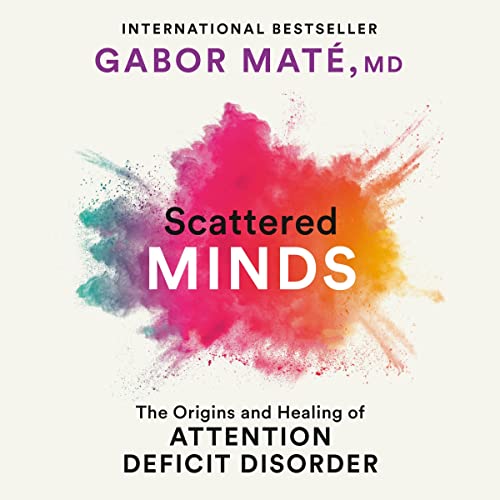
I’m both excited and reluctant to explore audiobooks about ADD. The advice and opinions associated with the condition can come off as blame-centered, dismissive, and cruel. However, Mator’s audiobook offers a wealth of information about ADD without making the listener feel any of these things. Whether you suffer from ADD or know someone who does, he has real advice for how to best work with this condition.
Scientific data mixed with stories from ADD sufferers, including Mator, questions the origin of the condition and points out the major ways it can affect those who have it. This listen helped me feel relief and release as a person whose loved ones deal with ADD in their everyday lives.
Length: 10 hours and 59 minutes
Rest Easy: Discover Calm and Abundance Through the Radical Power of Rest
By Ximena Vengoechea. Narrated by Ximena Vengoechea.
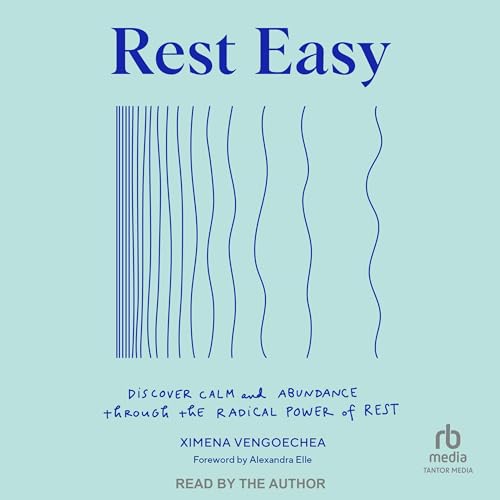
Rest isn’t easy for anyone in our capitalistic hustle culture, and it can be an even bigger challenge for those who are neurodivergent. Vengoechea explores the barriers we all face when trying to rest and gives us tools to overcome them. There is ample discussion about the different types of rest and why simply sleeping is not the only way to take a break from the exhaustion that ails us.
Vengoechea helps listeners identify what kind of rester they are, and this is insightful when trying to recognize the barriers that keep you from quality rest. Her extensive research on the importance of rest and why it is often inaccessible to minorities and all those who don’t fit the typical male, heteronormative design allows readers to recognize their hurdles, systemic and personal, and move through them.
Length: 5 hours and 10 minutes
Burnout: The Secret to Unlocking the Stress Cycle
By Emily Nagoski and Amelia Nagoski. Narrated by Emily Nagoski and Amelia Nagoski.
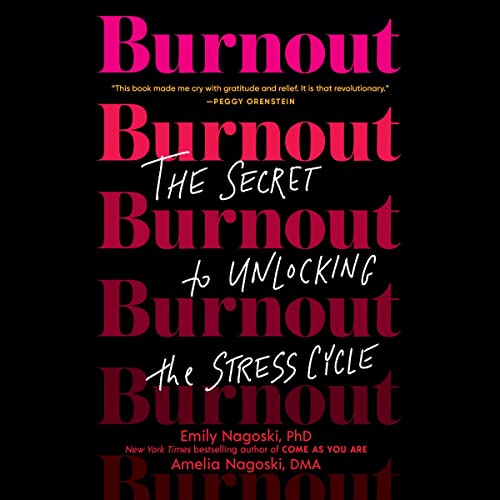
I recommend this listen to everyone, and I have actually bought it for friends to make having access to it easier. It would be a better world if we all knew how to handle burnout before it started.
Those who are neurodivergent may burn out at a faster rate than those who are neurotypical. Constantly trying to mask or fit in a world not made for you is exhausting. The Nagoski sisters write for everyone, but the neurodivergent community will find information in this book that can help them lower stress levels and break the cycle even as they are dealing with chronic stressors in the world. Well-researched, thorough, and enjoyable to hear, Burnout is genius.
Length: 7 hours and 1 minute
How to Keep House While Drowning: A Gentle Approach to Cleaning and Organizing
By KC Davis LPC. Narrated by KC Davis LPC and Dr. Raquel Martin
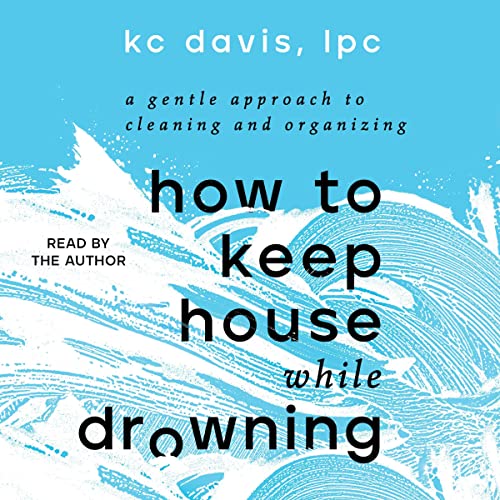
The title of this listen alone was so relatable that I could feel myself gasping for air from underneath my 17 unfolded piles of laundry. The typical advice-put away as you go, create detailed systems-doesn’t work for everyone, especially those who are neurodivergent. Davis recognizes this and presents practical advice for how to keep your home clean and tidy without the guilt and shame some of us face when dealing with domestic tasks.
The practical advice alone is worth the listen, but the revolutionary part of this audiobook for me was how Davis changed my mindset around chores. Defining them as care tasks and explaining how that’s different shifted my perspective and allowed me to see previously mundane tasks as ways to enhance my life and everyday experiences.
Length: 3 hours and 3 minutes
A Thousand Ways to Pay Attention: A Memoir of Coming Home to My Neurodivergent Mind
By Rebecca Schiller. Narrated by Rebecca Schiller.
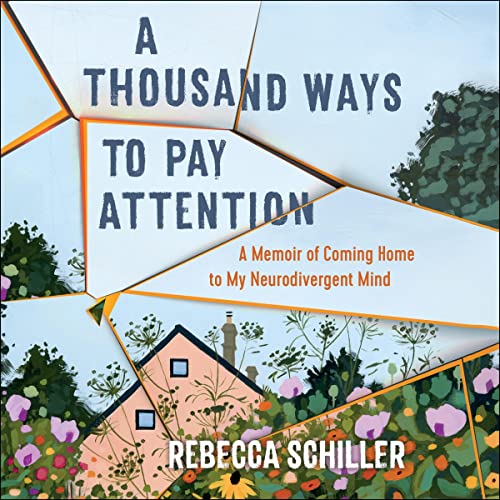
Schiller thought moving to a quiet area in the country would bring her peace and calm. Instead, she found herself full of rage, having memory issues, and dealing with unexpected physical symptoms that left her reeling. Schiller suffered the fate of many females who have ADHD: she was never diagnosed, and her condition wasn’t seen until she was struggling in the extreme.
Weaving a story of her own journey and the journey of the land she inhabits, Schiller looks for answers and finds them in this beautiful listen. She encourages listeners to embrace their minds, whatever they may hold, and move past the idea that different means broken.
Length: 11 hours and 12 minutes
Divergent Mind: Thriving in a World that Wasn’t Designed for You
By Jenara Nerenberg. Narrated by Tegan Ashton Cohan.
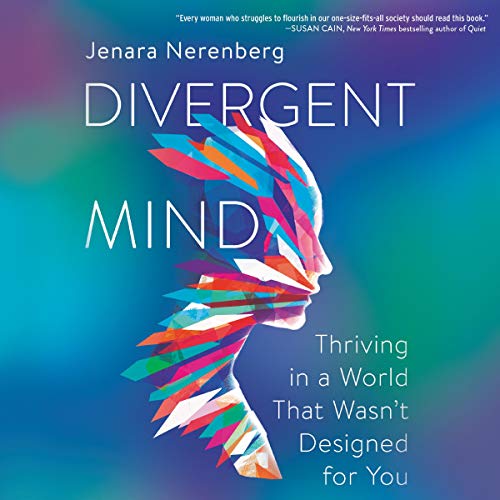
Nerenberg found out she was neurodivergent later in life the same way many women do. They go along trying to fit in and are usually eventually diagnosed with anxiety and depression. What they actually have is usually a form of neurodivergence that has kept them from being about to live freely in a world not designed for them to thrive.
Nerenberg is a journalist, so she used her skills to research more about the neurodivergent mind and how allowing it to flourish can benefit society. She proves old myths about neurodivergence wrong, and she does it all in a way that is understandable, empathetic, and hopeful.
Length: 6 hours and 37 minutes
Neurotribes: The Legacy of Autism and the Future of Neurodiversity
By Steve Silberman. Narrated by William Hughes.
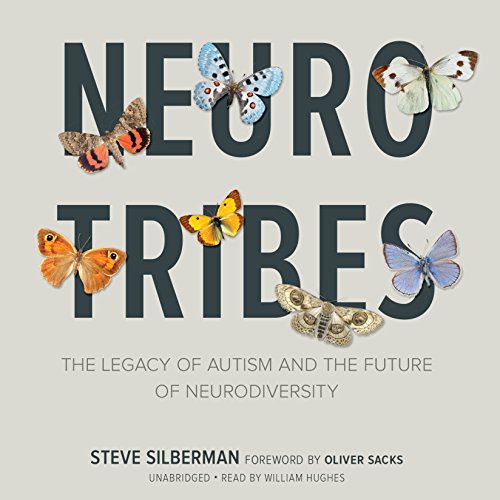
You will find both disturbing facts about how people with autism have been treated throughout the years alongside answers to why the diagnosis of autism has increased drastically in the last couple of decades. Silberman shares the history of autism and those who had it when help and support were not offered. Though this can be hard to hear, he also shows how new leaders in the world of neurodiversity are demanding more now, and how we can all be a part of making that happen.
Rich with research, listen to this one with a pen in hand to take notes.
Length: 18 hours and 46 minutes
The Pattern Seekers: How Autism Drives Human Invention
By Simon Baron-Cohen. Narrated by Jonathan Cowley.
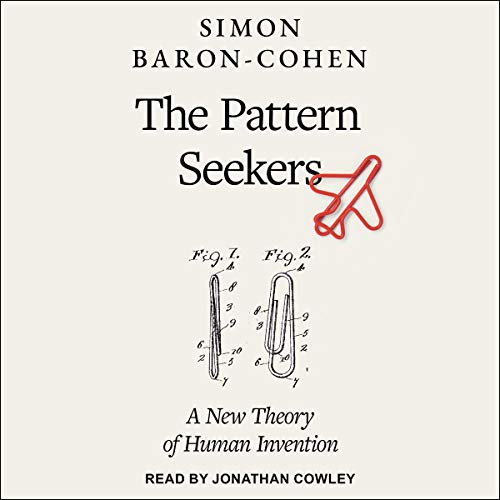
Baron-Cohen asks listeners to ask questions about how humans evolved and why we invent. His answer: autism. The patterns the autistic mind is able to find may also be the key to the ingenious inventions humans have been responsible for over time.
However, being autistic is often seen as only a disability, a difference. Baron-Cohen helps listeners reframe how they see autism and find ways to support the pattern seekers among us who create a world that is capable of continuing to move forward.
Length: 5 hours and 42 minutes
Plums for Months: Memories of a Wonder-Filled Neurodivergent Childhood
By Zaji Cox. Narrated by Stephanie Weeks.
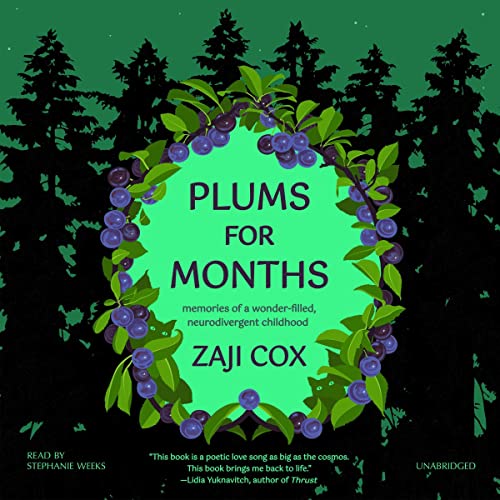
Cox grew up outside of Portland, Oregon, biracial and neurodivergent. She also faced the challenge of living in poverty, but exploring the century-old house she lived in gave her plenty to do and created magic around her childhood. This short collection of essays can be devoured in an afternoon, and Weeks narrates them beautifully.
Length: 2 hours and 46 minutes
The Book Eaters
By Sunyi Dean. Narrated by Katie Erich.

This work of fiction is perfect for any audience, but its appeal to the neurodivergent is found in a character who does not hunger for the same things as his family and community. The community eats books and retains the information like other people eat food. What books they are introduced to is largely gendered, but the practice is accepted in the community they created.
When Devon has a child of her own, she finds his hunger is different, even in a community where difference is normal. Her son doesn’t want to eat books; he wants to devour human minds.
A book about being different, being family, and going the distance for those we love, all listeners will relate to his intensity and emotions in these words.
Length: 13 hours and 27 minutes
What’s the best audiobook dealing with neurodivergent issues you’ve listened to? Please let me know in the comments below.
